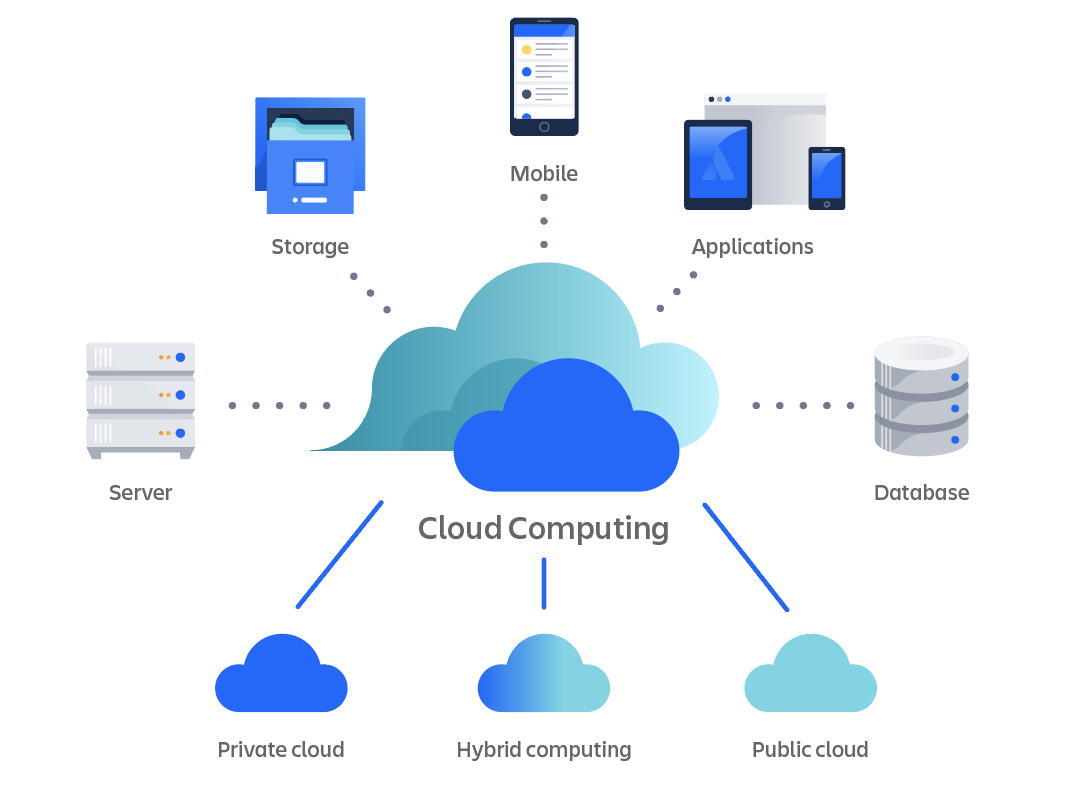Secure Your Data: Trustworthy Cloud Providers Explained
In a period where data violations and cyber threats impend huge, the demand for durable data safety and security steps can not be overstated, especially in the world of cloud solutions. The landscape of trustworthy cloud services is progressing, with file encryption techniques and multi-factor authentication standing as columns in the stronghold of sensitive details. Past these foundational aspects exist complex methods and innovative technologies that lead the means for an even more safe and secure cloud atmosphere. Understanding these subtleties is not merely an alternative however a necessity for people and organizations looking for to navigate the digital realm with self-confidence and resilience.
Significance of Information Security in Cloud Services
Making sure durable data safety measures within cloud services is paramount in protecting sensitive details against prospective hazards and unapproved access. With the boosting dependence on cloud services for keeping and refining information, the need for strict protection methods has actually ended up being much more essential than ever before. Data breaches and cyberattacks pose considerable risks to organizations, resulting in monetary losses, reputational damage, and legal ramifications.
Carrying out solid verification devices, such as multi-factor authentication, can help avoid unapproved accessibility to shadow information. Normal protection audits and susceptability assessments are additionally necessary to recognize and deal with any powerlessness in the system promptly. Educating employees about best practices for information protection and enforcing strict accessibility control plans additionally improve the general safety and security position of cloud services.
Additionally, conformity with market policies and standards, such as GDPR and HIPAA, is vital to make certain the defense of delicate information. Security methods, protected data transmission methods, and information backup treatments play vital functions in protecting information saved in the cloud. By focusing on data protection in cloud services, companies can alleviate dangers and build depend on with their clients.
Encryption Methods for Data Defense
Effective information security in cloud solutions depends heavily on the application of robust security techniques to guard sensitive details from unauthorized accessibility and possible protection breaches. Security involves transforming information into a code to stop unauthorized customers from reading it, making sure that even if data is obstructed, it remains illegible. Advanced File Encryption Standard (AES) is commonly made use of in cloud services because of its toughness and reliability in shielding information. This strategy uses symmetric vital encryption, where the exact same trick is made use of to encrypt and decrypt the data, making certain protected transmission and storage.
Additionally, Transport Layer Security (TLS) and Secure Sockets Layer (SSL) protocols are generally used to secure information throughout transportation between the cloud and the user server, supplying an additional layer of safety. File encryption crucial administration is critical in maintaining the honesty of encrypted data, making sure that secrets are securely kept and handled to stop unapproved gain access to. By executing strong security strategies, cloud provider can improve data protection and instill count on their individuals concerning the safety and security of their information.

Multi-Factor Authentication for Boosted Safety
Structure upon the structure of durable security techniques in cloud services, the application of Multi-Factor Verification (MFA) offers as an added layer of security to enhance the security of delicate information. This included protection measure is vital in today's electronic landscape, where cyber hazards are increasingly advanced. Carrying out MFA not just safeguards information however likewise improves customer self-confidence in the cloud service supplier's dedication to data safety and privacy.
Data Backup and Disaster Recovery Solutions
Executing robust data backup and disaster healing services is essential for guarding essential details in cloud services. Data backup includes producing copies of data to ensure its availability in the event of information loss or corruption. Cloud solutions provide automated backup alternatives that regularly save information to safeguard off-site servers, decreasing the risk of information loss because of hardware failures, cyber-attacks, or user mistakes. Catastrophe recovery solutions concentrate on bring back data and IT framework after a turbulent event. These solutions consist of failover systems that immediately switch to backup web servers, data duplication for real-time backups, and recuperation approaches to lessen downtime.
Cloud solution carriers usually use a range of backup and calamity healing alternatives tailored to satisfy different needs. Businesses should evaluate their data needs, healing time goals, and spending plan constraints to pick the most ideal services. Routine testing and updating of back-up and calamity recovery plans are necessary to ensure their effectiveness in mitigating information loss and reducing disturbances. By implementing trustworthy information backup and disaster healing services, companies can boost their information protection posture and preserve service connection despite unanticipated events.

Compliance Criteria for Data Personal Privacy
Offered the boosting emphasis on data protection within cloud solutions, understanding and sticking to compliance criteria for information personal privacy is vital for visit homepage organizations operating in today's electronic landscape. Conformity requirements for data personal privacy incorporate a set of guidelines and laws that companies should follow to ensure the defense of delicate details kept in the cloud. These standards are made to secure data versus unauthorized access, violations, and abuse, therefore promoting trust in between companies and their consumers.
Among the most popular compliance requirements for information privacy is the General Information Protection Policy (GDPR), which relates to organizations handling the individual information of individuals in the European Union. GDPR requireds rigorous requirements for data collection, storage space, and processing, imposing significant fines on non-compliant organizations.
Additionally, the Medical Insurance Mobility and Liability Act (HIPAA) sets standards for securing delicate patient health info. Following these conformity standards not only assists organizations stay clear of YOURURL.com legal consequences however additionally shows a dedication to information privacy and safety and security, improving their reputation amongst clients and stakeholders.
Final Thought
In verdict, making certain information security in cloud services is paramount to safeguarding sensitive information from cyber risks. By applying robust file encryption methods, multi-factor verification, and reliable information backup solutions, companies can mitigate risks of data violations and keep conformity with data privacy standards. Adhering to best methods in information safety not only safeguards important information yet additionally cultivates depend on with clients and stakeholders.
In an age where information violations and cyber threats impend big, the need for robust data security measures can not be overstated, specifically in the world of cloud services. Implementing MFA not just safeguards data but additionally improves customer self-confidence in the cloud service copyright's dedication to data security and personal privacy.
Data backup entails producing copies of information to ensure its schedule in the occasion of data loss or corruption. cloud services press release. Cloud services use automated basics backup alternatives that on a regular basis conserve information to protect off-site web servers, minimizing the risk of information loss due to hardware failings, cyber-attacks, or user errors. By implementing robust encryption methods, multi-factor authentication, and trustworthy data backup options, organizations can alleviate risks of data violations and preserve compliance with information privacy standards